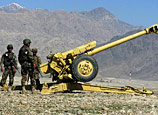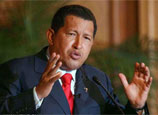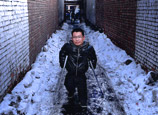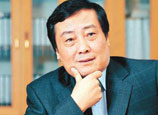
Now an elevator maintenance worker, Yu left drug testing after two years when a bad experience left him with poorer health.
Near the end of 2010, Beijing Proswell Medicine Company offered Yu the opportunity to earn 10,000 yuan for a 100-day drug trial of an anti-tumor medicine. After several checkups, Yu, together with three others, started the job.
"There were 50 candidates in the beginning, but most of them didn't pass the checkups since only super healthy people could qualify for this job," Yu said.
He went to a hospital in Beijing and was injected with 2 milligrams of this newly developed anti-tumor medicine. This is when his nightmare began. After about only two minutes, Yu's body showed signs of rebellion - arrhythmia, headache, thirst and a 38C fever. He was then required to get an electrocardiogram (EKG) test, and the results failed to meet the normal range, so Yu was asked to take a break from the test and sent home, but requested to return for another series of EKG tests in the following days.
"I did more than 50 EKGs within two months, and none showed that I was as healthy as before," Yu said.
Yu's sickness couldn't have come from nowhere, since all anti-tumor medicines have side effects, according to Xu Yun, a doctor with Nanjing Drum Tower Hospital in Jiangsu Province.
"If an anti-tumor drug is effective at killing tumors, then it could affect the normal tissues too since a medication that only kills cancerous tissue is rare. It may also cause a decrease in white and red blood cells that can lead to low immunity and make people catch colds and infections easily," Xu said. She also noted that all the symptoms generated during the drug testing don't necessarily relate to the medicine that testers take.
Yu still got the 10,000 yuan promised for the job, but didn't ask for any compensation. Yu said that he didn't think about it that much and assumed his arrhythmia would heal itself, but now he regrets it.
He tried to contact the doctor who was in charge of the test he took, but his request for compensation was turned down, Yu said.
"The doctor told me that they had already fulfilled their responsibility by doing checkups and informing me about all the expected side effects on the consent form I had signed, so there was nothing that they could do to help."
This issue led to Yu abandoning the job for good. He told Metro Beijing that he doesn't think the job was worth the damage to his health.
"We were like lab rats. Those drugs that we tried may not show side effects that quickly and obviously, but as time passes by, testers would find that they are not as healthy as before and would be lazier since drug testing doesn't require labor or brain work."
Yu is currently contacting friends who successfully received compensation from hospitals or drug makers to learn how he, too, could do so.
Another side to the story
Ren Tianyue, a 26-year-old Beijinger who works in IT, found his first drug test opportunity online in 2011 for an allergy medicine.
Before Ren could secure the job, he needed to have checkups in order to make sure that he was healthy.
The physical exam included tests on pulse, breath, heartbeat, EKG, blood, urine, alcohol, smoking and drug abuse, and was done in less than two hours. After passing, Ren became an official drug tester.
Drug testers can also rig the results of the checkups in order to get into the test group.
"Drug testers research how to get good checkup results. For example, they can make pinpricks disappear," Ren revealed. Needle marks show they've done a test within three months, which is not allowed. Testers with good relations with agencies can get jobs without checkups.
Through about 20 tests, Ren's drug testing life passed relatively smoothly, except for an anti-cancer drug test he did last May which caused him kidney problems and lethargy. Yet Ren still speaks about drug testing with a sense of duty.
Usually, testers sign informed consent forms beforehand which spell out all the health risks that might occur from taking this medicine and the responsibility of the hospital, which is that they only need to do what they can to rescue testers who are in danger. But according to Ren, this only "applies to in-test people."
"Once you finish the test and are no longer a member of the group, they will not accept your complaints whatsoever," Ren said.
"Compared with other countries, where the tests done on humans are strictly performed in accordance with laws, in China, laws and regulations over human drug testers are still in chaos," said Zhuo Xiaoqing, an expert on health law from Beijing University of Chinese Medicine, in a report in Beijing Business Today.
Zhuo also pointed out that during the trial process, sometimes testers' right to know is not guaranteed. From time to time, cases occur where hospitals and agencies blame each other once a problem occurs.
Those types of cases require strict government supervision and testers should also ask the drug maker to offer insurance beforehand.
But Ren doesn't feel the risks of being a drug tester are too high.
"In China, most drug makers are making copycat medicine from a foreign counterpart, and the drug test is just a formality," Ren said.
Ren sees the job he does as a noble calling. "It's like blood donation. At the beginning, people might not accept it, but later, it becomes a good deed," Ren said.
For Ren, his best reward is not money. A drug that he once tested was successfully used by his friend.
"This makes me proud. I think I did something that can benefit the whole of society," Ren said.

















 Missing baby killed in Changchun | Photos: Local residents mourn for killed baby
Missing baby killed in Changchun | Photos: Local residents mourn for killed baby


![]()
